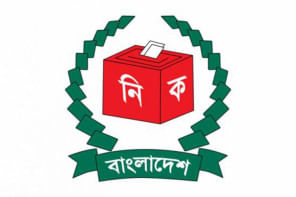Changing contours of Bangladesh-Myanmar relations
IN another 15 days, on April 1 this year, our eastern neighbour Myanmar will undergo a change of governance.
After 53 long years, this country, which has been a military dictatorship since 1962, will be replaced by a semi-democratically elected government. We say "semi" as, in the new parliament, a significant number of seats will be occupied by members appointed by their Army Chief. Three important cabinet posts -- defence, border affairs and home -- will also be held exclusively by armed forces personnel. The army, in the new context, will still have the power to impose emergency rule and suspend democracy. However, in spite of these shortcomings, it is hoped that neighbouring Myanmar will make an important transition to fully democratic governance in the near future.
What is important for Bangladesh to note is that the autocratic and reclusive country is soon to be a liberal and democratic one, with immense possibilities for growth and trade partnerships. In the imminent transformation, Bangladesh, as a democratic country, with its own political deficits, should strive to create a more meaningful relationship with Myanmar. Both the countries have tremendous potential which can be exploited for a better political and economic future.
It is imperative that Bangladesh engages with Myanmar, and that while doing so, it protects its national interests. We should look to reap the benefits of setting up cross border businesses. We should also persuade Myanmar to allow cross border transit to China. The other aspect that needs close attention now is resolving the Rohingya issue, which should be addressed through extensive consultation with international stakeholders and with the new Myanmar government. We must highlight how resolving the issue would ensure regional peace and economic integration.
The recent crackdown by Bangladesh forces on the Arakanese militants should alert the Myanmar authorities that Bangladesh has no intention to support separatist forces in Myanmar. A democratic dispensation in Myanmar should appreciate Bangladesh's desire to develop cordial relations with the new government there.
As for economic cooperation, Bangladesh ought to convince the central government in Myanmar to draw up plans to set up free trade zones along both borders in order to access each other's markets as well as the international markets. The western part of Myanmar is rich in raw materials and minerals. With Bangladesh's trained manpower in select industries and Myanmar's raw materials, a great manufacturing hub can be created for exports and services.
It is clear that Bangladesh and Myanmar have a shared history. People from the Chittagong area and adjacent districts in eastern Bangladesh routinely travelled to Myanmar, intermarried, conducted business and travelled to other parts of the world together. A shared past means there is a great potential to build a shared future. Keeping our separate identities, we can leverage on each other to build a better future. To this end, we must consider learning some of Myanmar's languages in special institutions in our country. We must also initiate tourism between our two countries through official channels, visit and learn about their diverse cultures, and import their fine wood, textiles and metals through official channels. Communication by sea, land and in later stages by rail must be introduced. Mobile phone communication must be made easy. Our universities and colleges must encourage Myanmar students (initially in limited numbers) to apply, and a general climate of trust and friendship must be developed between our two peoples.
The people of our two countries have wasted too much time; our present relations can be described, at best, as a relationship between two 'near but far' countries. By the next decade, both the countries must take definitive steps to be described as 'two close neighbours'.
The writer is a former Ambassador and columnist. E-Mail : ashfaque [email protected].

 For all latest news, follow The Daily Star's Google News channel.
For all latest news, follow The Daily Star's Google News channel. 



Comments